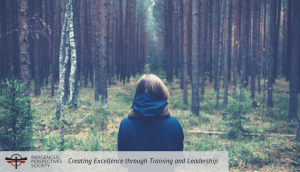 In a world that celebrates knowledge and expertise, we invest a lot of time and money in learning to increase our sense of knowing. Knowledge is powerful. We are told that when we go into a situation we need to know how to handle it, how to keep control, how to do the right thing, how to be safe. Knowledge protects us from our fear.
In a world that celebrates knowledge and expertise, we invest a lot of time and money in learning to increase our sense of knowing. Knowledge is powerful. We are told that when we go into a situation we need to know how to handle it, how to keep control, how to do the right thing, how to be safe. Knowledge protects us from our fear.
As a child, when I began to raise my head from playing with my toys and started to observe the world outside of my immediate familial relationships, which were themselves fractured and unreliable, I couldn’t understand why anyone would want to create what I was seeing. The world of social division, war, consumerism, and environmental destruction I was witnessing was a stark contrast to how I felt about those I loved and the beauty I saw, as imperfect as it was. Acquiring knowledge was the only way to make sense of any of it.
When I went to university I was on a quest. I wanted to find out how the world works, how it ended up the way it is and why. I studied anthropology, history, geography, sociology, philosophy, and political science in an attempt to piece together how we all ended up here behaving the way we do. I learned a lot. I learned so much that the year following completing my degree I was part know-it-all and part completely disillusioned. I remember a friend saying to me, “You think you know, but you don’t.” I disconnected for a while, not knowing how to best be of service.
Emerging from healthcare and social work interactions is a concept of Cultural Humility. It is a view that encourages people to cultivate self-awareness and realize their own places of power, privilege and prejudice. By reflecting on what has shaped our views, and what may have impacted the views of others, we can cultivate compassion and meet each person with our cups empty, to be filled with the information they share about who they are. We are only experts on our own experience. Sometimes the best education teaches us how much we don’t know, how much we can’t know, and with that knowledge we learn to be fully present.
About the Author
Alesha Hayes is the Business Development Coordinator for the Indigenous Perspectives Society –Creating Excellence through Training and Leadership. A non-indigenous ally, Alesha was born and raised in Secwepemc territory and now enjoys life in Lkwungen territory on southern Vancouver Island. For more information on Cultural Perspectives Training email her at aleshah@ipsociety.ca and visit www.ipsociety.ca
